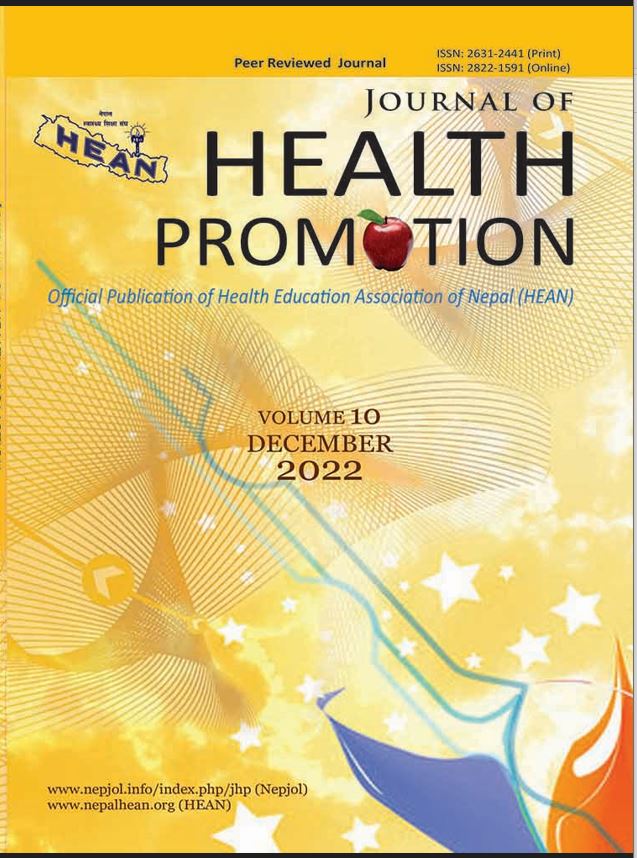Nutritional practices of the preschool-aged children and associated factors: A cross-sectional study in Rupandehi district of Nepal
DOI:
https://doi.org/10.3126/jhp.v10i1.50988Keywords:
associated factors, nutritional practice, preschool childrenAbstract
Undernutrition is a common problem among Nepali preschool-aged children. Every parent’s feeding practice should be focused on preventing unhealthy eating behaviors of preschool-aged children as it is very difficult to change it in their later life. This study was carried out to assess the key nutritional practices and associated factors among the 3-5-year-old preschool-aged children from their primary caregivers/mothers by employing a quantitative research method. Data were collected through scheduled interviews and observations from mothers/primary caregivers of 394 preschool-aged children who were selected through a multi-stage random sampling procedure in Rupandehi District of Nepal. Binary logistic regression was done to determine the predictors of nutritional practices of preschool-aged children. A p-value less than 0.05 is considered statistical significance. Economic statuses including caste/ethnicity were the main socio-economic and demographic variables to determine the nutritional practices of the preschool-aged children. Findings of the study indicated that majority of preschool-aged children were found in low-level nutritional practices. The preschoolaged children from marginal economic status, including disadvantage-cohorts of the Terai and Dalit, were the victims of the poor nutritional practices. Hence, community-based nutrition education intervention and mothers/caregivers’ awareness programs on feeding practices may be an incredible effort to improve the nutritional status of preschool-aged children if the program is intervened by targeting the background characteristics of the community group.
Downloads
Downloads
Published
How to Cite
Issue
Section
License
Copyright (c) 2022 Journal of Health Promotion

This work is licensed under a Creative Commons Attribution-NonCommercial 4.0 International License.
© Health Education Association of Nepal (HEAN)
Authors are required to transfer their copyright to the Health Education Association of Nepal (HEAN).
The materials of this publication may be reproduced, reviewed and translated, acknowledging the source "Journal of Health Promotion".




